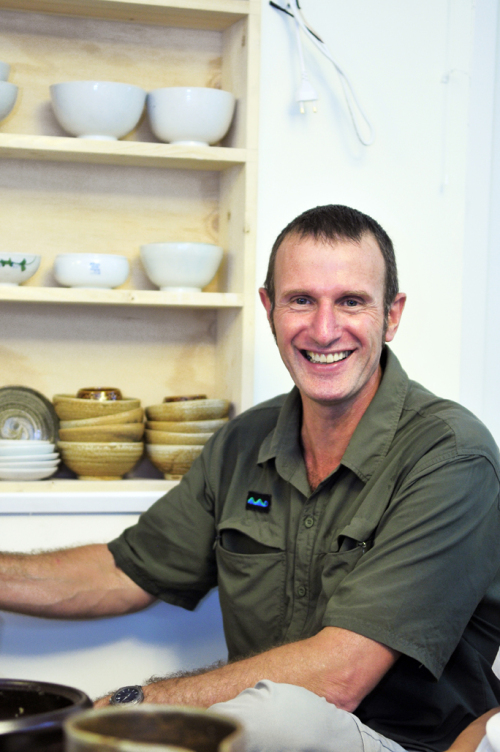Even experienced hikers would not dare try trekking the Baekdu Daegan trail, the longest mountain range and watershed crest line which runs through most of the length of the Korean peninsula.
Such a project seems tougher for foreign nationals who typically do not speak the Korean language and are not familiar with its culture.
Yet two New Zealanders Roger Shepherd and Andrew Douch succeeded in trekking the Baekdu Daegan trail for the first time as foreign nationals.
Starting at Cheonwangbong Peak of Jirisan, the two friends completed the walk at Hyangrobong Peak in Gangwon Province in 2007. They finished the course in 70 days only relying on canned tuna, ramen and a few articles of clothing plus a sleeping bag.
Such a project seems tougher for foreign nationals who typically do not speak the Korean language and are not familiar with its culture.
Yet two New Zealanders Roger Shepherd and Andrew Douch succeeded in trekking the Baekdu Daegan trail for the first time as foreign nationals.
Starting at Cheonwangbong Peak of Jirisan, the two friends completed the walk at Hyangrobong Peak in Gangwon Province in 2007. They finished the course in 70 days only relying on canned tuna, ramen and a few articles of clothing plus a sleeping bag.

The two published a book entitled “Baekdu Daegan Trail: Hiking Korea’s Mountain Spine” earlier this month intended to attract more foreign tourists to the mountains of Korea.
The in-depth guidebook, which is the first-ever English publication to introduce the Baekdu Daegan trail, was published from Seoul Selection, a local publisher which specializes in English publications.
It was actually Shepherd who first went to the mountain trail in 2006 on his own when he was on a leave from his diplomatic bodyguard job in New Zealand.
Although not a professional hiker, Shepherd said he has always been an adventurous outdoor person, having lived in South Africa for eight years.
“I just had maps, and heard of the list of mountains and where to go but basically had no information and absolutely no experience in the language. But it was a marvelous walk and I wanted to share it with other foreigners,” he told reporters in central Seoul on Tuesday.
Shepherd said he was drawn to Korean mountains because of their unique aspects. They are a place anyone can go and enjoy the nature unlike the Himalayas where hikers are obliged to “conquer” the top, he added.
“Korean mountains are like boutiques. They are not big and ugly like some of the ones in New Zealand -- they are safe, friendly and accessible. I also liked the sense of spookiness and spirit to them,” he said.
He described them as “unforgettable blue mountains,” where he can see endless blue haze across the country. He cited waking up on mountain tops and watching the horizon as one of the most memorable moments.
However, encountering the monsoon season here and realizing that he had not written down anything during his walk, Shepherd had to halt his 2006 walk and went back to New Zealand.
In the 2007 attempt, Shepherd asked Douch, who is an experienced hiker and has lived in Korea for more than 10 years, to accompany him. He also asked Kyunghee University Tourism & Management professor and mountain expert David Mason for help. Mason later proofread the book while adding academic information to it.
Shepherd and Douch completed the walk in 2007. Unfortunately, they could not make it to the North Korean part of the trail. Although Shepherd left a message asking for permission to do so on the country’s official website, he was rejected due to “safety reasons.”
This time they gathered as much information and photos for the book -- such as the location of water sources and accommodations -- by writing a detailed logbook using a GPS.
The two focused on capturing not only the hiking routes, but also each mountain’s history, culture and people during the process, which he described as a “social journey.”
“I enjoyed the landscape as well as the life in rural villages. I listened to pansori (traditional Korean opera), drank makgeolli (unrefined rice wine) and stayed at Buddhist temples, which is a big part of traditional Korean culture,” he said.
Particularly regarding people, Shepherd said he was always impressed with Koreans’ friendliness and generosity. Although the two foreigners shocked most of them at first, they all soon became very kind, he said.
“People provided us with accommodations in the mountain villages and food like walnuts. Once a stranger stopped on his way, got out of his truck and unloaded a box of apples and left without saying anything,” he said, laughing.
Despite the sense of fulfillment and joy, Shepherd said he was physically challenged and that he lost about 10 kilograms during the walk. Yet as he continued trekking, he got used to being left only with what is really needed for his body, he said.
Having fallen in love with Korean mountains, Shepherd quit his job in his homeland early this year and decided to stay here.
Currently as an honorary ambassador for the Korea Tourism Organization, he plans to promote Korea’s hiking tourism business while publishing a book on his own hiking experience.
“I am currently preparing a business proposal for the KTO. President Lee Charm has been very helpful and willing to positively review my proposal,” he said, adding that he is thinking of organizing temple stay-like activities for tourists.
In fact, Shepherd himself has been staying at a number of temples around the country during the past few months without having a certain base.
Shepherd said he desires to trek other mountain ranges outside Korea in the future.
“I would like to make Korea my second home, a base from where I can go to other nearby mountains. But I guess I should really learn the language first,” he said.
By Koh Young-aah (youngaah@heraldcorp.com)











![[Hello India] Hyundai Motor vows to boost 'clean mobility' in India](http://res.heraldm.com/phpwas/restmb_idxmake.php?idx=644&simg=/content/image/2024/04/25/20240425050672_0.jpg&u=)







